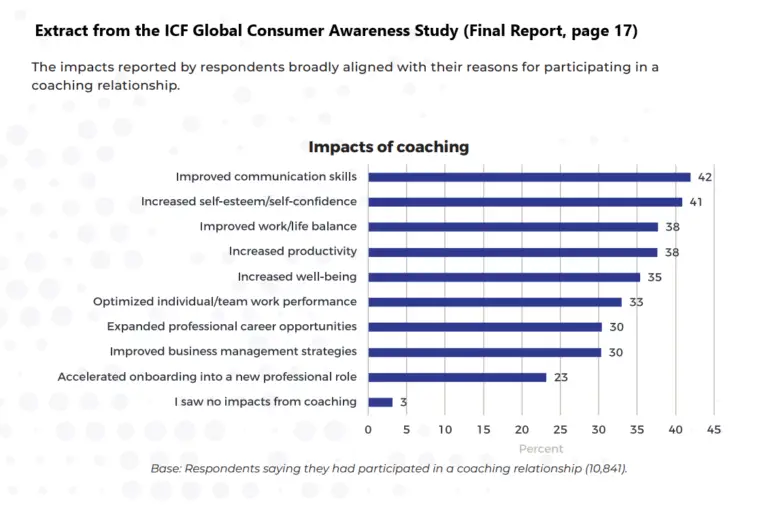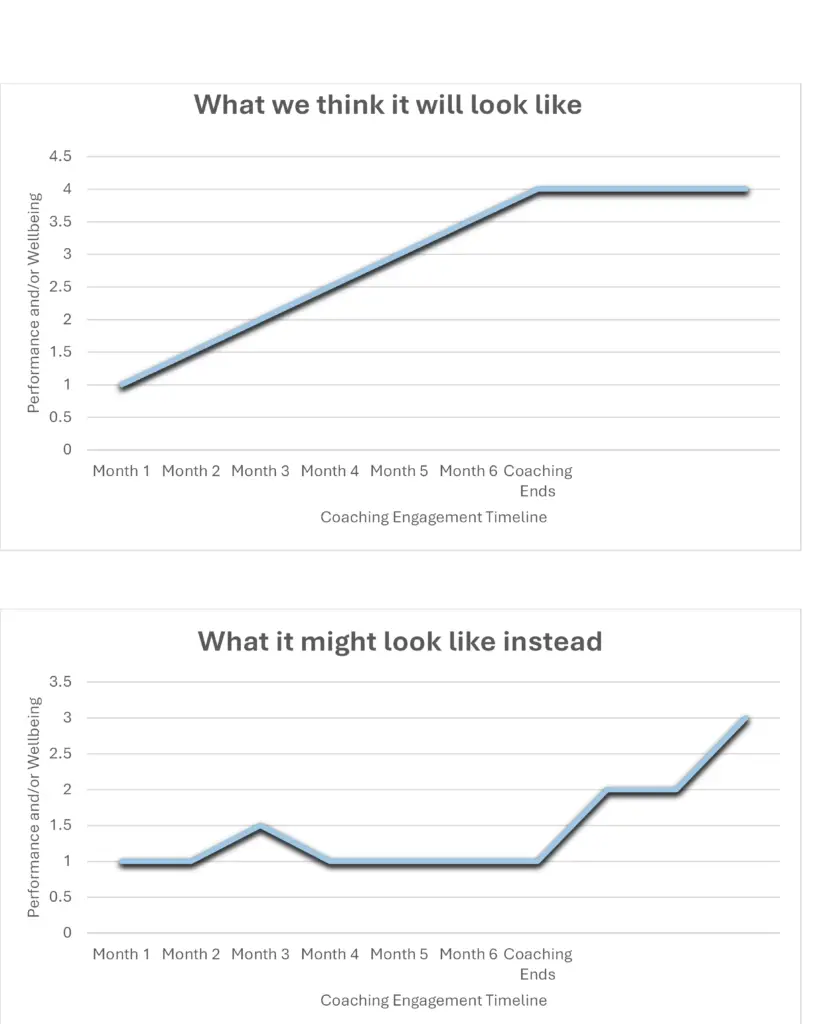What is the value of Executive Coaching?
Outcomes of Executive Coaching include measurable shifts in confidence, resilience, and decision-making. These changes often translate into improved leadership capabilities and more effective workplace behaviours.
What influences the success of executive coaching?
You should expect a return on your investment (of time and money) in coaching. There are three key things that influence the success of coaching:
One.
The quality of the relationship between the coach (me) and the client (you). This is why the introductory meeting is so important – we both need to believe that I am the right coach to help you! Your coach must be able to create trust and safety, so they can support and challenge/stretch you (this is described as ‘forthright dialogue’ below). The balance of trust with tension is what makes the coaching relationship unique.
Two.
The experience and expertise of your coach (described as ‘Coach Attributes’ below). The coach’s training, coaching qualifications and coaching experience (note that this is not consulting, counselling, mentoring or advising). On the ICF website you can search by name to see if your prospective coach holds a credential (ACC, or the higher level of PCC) with the International Coach Federation.
Three.
Your motivation to change and commitment to the coaching process (described as ‘Client Readiness’ below). You have to want things to be different… but you also have to do what’s required to make that change happen. Participating in coaching sessions every 3-4 weeks is the foundation, but the work you do between coaching sessions is just as critical to you achieving the outcome/s you want from coaching.
What does the research say?
Research published in 2025: Determinants of Effective Executive Coaching
A recently published PhD thesis by Rachel Hudson, titled Determinants of effective executive coaching: a qualitative inquiry of the client experience identified five central determinants of effective executive coaching:
- Client Readiness, including informed expectations, willingness to engage, and commitment;
- Coach Attributes, such as the ability to support and challenge, objectivity, and adaptability;
- The Relationship, characterized by collaboration, empowerment, and forthright dialogue;
- The Purpose, when associated with meaningful development and long-term growth rather than short-term objectives; and
- Contextual Influences, including the client’s boss, organization, and professional network.
Her research also shows that coaching effectiveness develops over time through the dynamic interplay of these five determinants, described as the experiential journey through which outcomes are achieved.
Research published in 2024: Impact of Coaching

How can you measure the success of coaching?
Research shows there are three primary ways to measure coaching effectiveness:
- Participant feedback.
- Participant behavioural change.
- Observations from participant’s peers or supervisors regarding behaviour change attributable to coaching.
This feedback can be collected during the coaching engagement, and/or at the end of a coaching engagement.
Further, the impact of coaching can be measured at one of three levels:
- Individual learning.
- Job impact.
- Business results.
Progress in coaching is not necessarily linear. We like to think positive changes impacting performance and wellbeing will look like Diagram A, but in reality it often looks more like Diagram B.
Diagram A

Diagram B

How does executive coaching help?
“This study provides evidence that executive coaching can be a beneficial tool during organizational change and can positively impact the manager’s performance… The executive coaching relationship may represent a psychological safe space where managers can easily learn and find strategies for navigating the challenges of organizational life. We suggest that executive coaching may lead to positive outcomes for both individuals and organisations. It may enable leaders to become more flexible cognitively and emotionally and able to build a performing team.”
Even with one-to-one coaching, the changed perceptions and behaviours of the individual have a spillover benefit into the wider team and organisation.